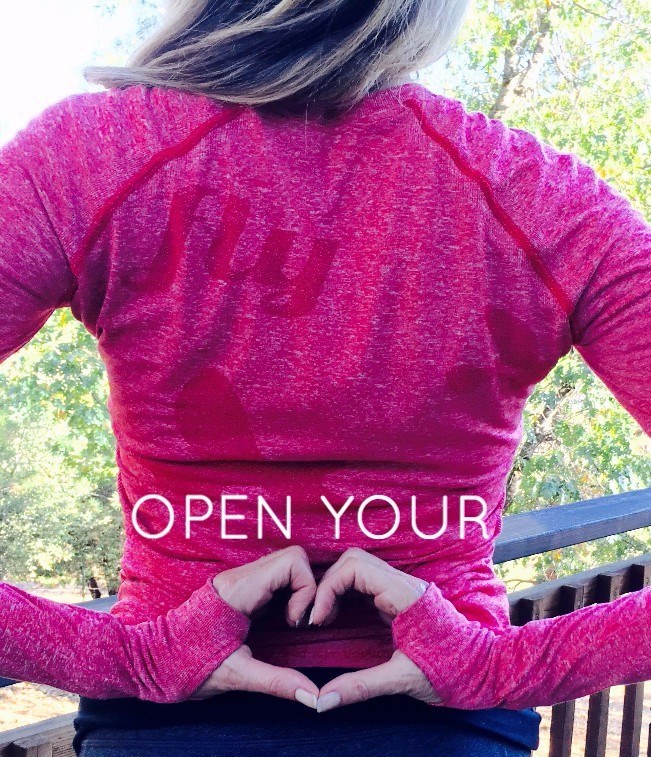William James, the first psychology educator in the United States, once wrote, “The deepest craving of human nature is the need to be appreciated.” Isn’t it true? We all intuitively know it feels good to have a partner who appreciates us.
But, we often get in trouble with our relationships because we forget to take the other person’s point of view and feelings into consideration. We’ll even walk that slippery slope of trying to conform our partner to be more like us—which is kind of ironic since we fell in love with their unique traits. It’s so easy to point fingers when relationships get messy, but the blame game never resolves the problem. In fact, it might actually heighten the issue. These types of behavioral patterns can cause so much stress that it can potentially ruin a relationship and wreak havoc on your own immune system, and perhaps even to cause you to gain weight. So having feelings of anger and anxiety in your relationship can heighten your stress levels.
Stress is your body’s response to change, whether it’s a positive or negative change. Everything that create stress triggers our fight, flight or freeze responses.
Our natural fight or flight reactions are induced by two different types of stress – eustress and distress. Both types of stress signal our body to release cortisol – the ultimate stress hormone – which triggers the fight or flight reaction.
Eustress is a positive stress – it pushes us to take charge and meet our goals, to finish that 5k race or nail a major presentation at work. Eustress gives us courage. In this instance, our stress is healthy because it comes with a built in release when you meet your goals that tells your body to stop producing cortisol and relax.
Distress is driven by fear or anxiety and is categorized as bad stress for one very important reason – there is no release point. At no point when you’re in distress do you receive the satisfaction of meeting your goals. Instead, your body continues to produce cortisol, creating a buildup of this powerful hormone that causes our fight or flight reaction to backfire. This can cause anxiety, depression, fear, and even weight gain.
Long-term stress caused by a constant state of distress is toxic to our brains and can speed up the aging process – something no one wants. But to fully understand how and why it happens, and or reshape the way we think of stress we need to understand what exactly happens to our bodies when we kick into “fight or flight” mode. Here’s a quick summary:
It starts with the heart. As your heart rate increases, so does your blood pressure level. Your breathing accelerates, your eyes dilate, and blood is shunted away from the stomach (sometimes to the point of halting digestion). Chemicals like adrenaline and noradrenaline are dumped into the bloodstream to give you the energy you need to react quickly. Your body is responding to a real threat (or, more often, a perceived threat, like a traffic jam or an urgent email from a colleague), and suddenly you’re preparing yourself for action. Throughout this entire process, cortisol is being released.
Cortisol is a big buzzword today. Anytime we’re in a situation that activates our stress response, cortisol floods our bloodstream. It’s bad news for several reasons. There’s a domino effect: High stress equals high cortisol levels, and high cortisol levels can lead to a whole host of issues. If you thought depression, anxiety, and weight gain were as bad as it gets, think again.
Long-term chronic stress has the ability to change the way that your mind works. The more stressful your life becomes, the more cortisol accumulates in your blood, slowing down your brain’s ability to process crucial functions.
Rather than working to improve learning and memory, when under constant stress the stem cells in your brain transform into hard-wired pathways that lead to anxiety, depression, and PTSD. Your brain becomes accustomed to a constant state of fight or flight, making it difficult to relax, live in the moment, and flourish in your relationship.
Here are 4 proactive ways you can help strengthen your relationship, while balance your cortisol levels on you and your partner.
1. WALK TO A RESOLUTION-
When you take a walk with your partner, it allows you to talk openly and honestly. As you walk, share about what’s bothering you in a way that’s non-threatening and loving. Talking and walking are great ways to work through issues plus walking is known to help lower the stress hormone, cortisol.
2. “T.M.” YOUR WAY TO A POSITIVE MINDSET –
Throughout the years, T.M., or Transcendental Meditation, has been a mindfulness practice of many celebrities, including the Beatles, . In my personal life, I’ve benefited from the mindfulness practice in so many ways, including its stress-reducing qualities.
Whether you choose meditation or yoga to calm down, try relaxing and going into a space of gratitude and acceptance. Choose to accept people the way they are and don’t try to change them. Love people through their faults and weaknesses— they’re unique because they’re them and that’s what makes them so special.
3. PUNCH FAST AND HARD –
Take out any stress, aggression or anger on a punching bag. For years, I’ve used boxing as an avenue to help me take responsibility for my own frame of mind. Channeling your frustration allows you to take charge of your own role in any kind of conflict. Sometimes we respond a certain way when things don’t go according to our plans. We try to change or control our partner, which can lead to major issues. Instead of taking out your frustration on the other person, let it out on the punching bag.
As you vent your frustration, let it all out so you don’t play the blame game. Be willing to take the humble route and take responsibility for any part of the conflict. Taking responsibility shows that you’re willing to work through the issue to find the best possible conclusion. It doesn’t mean you’re necessarily right or wrong, it simply means that you choose to lead to conflict resolution.
4. IMPROVE YOU–
Look for ways to help the other person. Perhaps it’s through seeking advice from an expert on the matter. Educate yourself and work on your own self-development. If you treat people the way you’d like to be treated then you’re setting a precedent that your willing to be kind even if that kindness isn’t returned. You might be pleasantly surprised by the response you receive.







